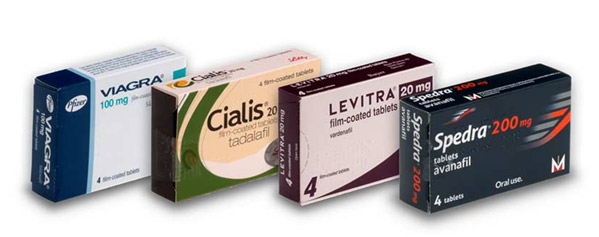Doctor Recommendations for the Treatment of Erectile Dysfunction Issues
Initial Recommendations
Treatment of Erectile Dysfunction – Before prescribing pills, potions, and creams for erectile dysfunction, your doctor will recommend various methods to increase the visibility and functionality of your penis. These lifestyle changes can significantly improve erectile function and overall health. Understanding and implementing these recommendations can lead to substantial improvements.
Methods to Help Erectile Dysfunction
Stop Smoking Cigarettes
Medical professionals have noted that regular smokers experience lower levels of erections. Smoking reduces your blood vessels’ ability to relax, impairing strong blood flow, which is vital for a robust erection. Quitting smoking can lead to significant health improvements. Many quit-smoking websites can guide you through the cessation process, offering support and resources to help you succeed.
Drink Less Alcohol
The National Library of Medicine conducted a study that found a high rate of sexual dysfunction in people who regularly consumed alcohol. Alcohol consumption reduces sexual performance and natural arousal levels. Drinking in moderation is recommended, as it can help maintain better sexual health. Being mindful of your alcohol intake can improve your overall well-being and sexual performance.
Avoid Certain Nasal Sprays
Some nasal sprays contain pseudoephedrine, an ingredient that prevents blood vessels from expanding. This can negatively impact erectile function. Your doctor can suggest alternative nasal sprays that do not contain this ingredient. Always consult your doctor before making any drastic medication changes to ensure you choose the best option for your health.
Review Other Medications
Certain medications include ingredients that prevent blood vessels from expanding or reduce blood flow. These medications can negatively impact erectile function. Speak to your doctor before stopping any medication. Your doctor may switch your medication to one with different side effects that do not affect your sexual health. This careful management can help maintain both your overall health and sexual function.
Reduce Stress Levels
Reducing stress levels can have a significant positive impact on erectile function. This may involve learning meditation techniques or seeking more support within your community. Stress management is crucial for improving erectile function. Finding effective ways to reduce stress can lead to better overall health and well-being.
Seek Counseling
For personal issues, it is recommended to seek professional help. Your general practitioner can refer you to a counselor or psychologist. These professionals can help you navigate mental health challenges and may include understanding and accepting your body as part of the treatment. Counseling can provide valuable support and strategies for managing mental health issues related to erectile dysfunction.
By implementing these lifestyle changes and seeking appropriate medical advice, individuals can improve their erectile function and overall quality of life. It is essential to address both physical and mental health aspects to achieve the best results.
Comprehensive Care
Combining these lifestyle changes with medical treatments can lead to significant improvements in erectile dysfunction. Working closely with healthcare professionals ensures a holistic approach to treatment, addressing all aspects of health. This comprehensive care can lead to long-term benefits and improved sexual health.

Medical Methods to Address Erectile Dysfunction
Methods to Make Your Penis Appear Bigger
Weight Loss
Your doctor may recommend weight loss to make your penis appear larger. Excess fat around the pubic bone can make the penis look smaller than it really is. Losing weight decreases the fat around the penis, making it more visible. Overweight individuals may also have high blood pressure, leading to hypertension that constricts blood vessels, affecting erectile function.
Liposuction
Liposuction, although commonly known for weight reduction, is actually used to reshape the body. It removes fat levels around the penis, making it visually appear bigger. Liposuction is considered less invasive than most other surgeries available. It is often used by people who are significantly overweight, helping improve both appearance and erectile function.
Cock Rings
Penis rings can make your penis appear larger by trapping blood in the shaft, leading to increased firmness and girth. When worn around the base of the penis, they help maintain a stronger erection, making the penis look more prominent and engorged. This temporary effect can boost confidence during sexual activity. However, it’s essential to use cock rings safely and not wear them for extended periods to avoid potential risks like restricted blood flow and tissue damage.
Medical Tests
Your doctor may also wish to conduct several medical tests to determine the cause of erectile dysfunction. These tests may include:
Blood Test
A blood test can identify underlying health issues contributing to erectile dysfunction. It involves drawing a small amount of blood from the patient to analyze hormone levels, glucose, and cholesterol. Side effects are minimal, usually limited to slight discomfort or bruising at the puncture site.
Urine Test
A urine test can detect diabetes, infections, or other conditions affecting erectile function. The patient provides a urine sample, which is then analyzed in a lab. This test is non-invasive and painless, with no significant side effects.
Erection Test
An erection test assesses the ability to achieve and maintain an erection. One method involves nocturnal penile tumescence (NPT) testing, where a device measures erections during sleep. This test is non-invasive but may cause slight discomfort from wearing the device overnight.
Psychology Check-up
A psychological check-up can determine if mental health issues contribute to erectile dysfunction. A psychologist or psychiatrist conducts an interview to evaluate stress, anxiety, depression, or relationship problems. There are no physical side effects, but discussing personal issues may be emotionally challenging for some patients.
Ultrasound
An ultrasound examines blood flow in the penis to identify vascular issues. This procedure involves applying a gel to the penis and using a transducer to create images of blood vessels. It is non-invasive and painless, with no significant side effects. This test provides valuable information about blood flow and potential blockages.
Hormone Treatment
If tests show low testosterone levels, your doctor may recommend testosterone injections. Low testosterone can affect sex drive and erectile function. Injections can help normalize levels and improve symptoms. However, if testosterone levels are normal, additional testosterone will not impact erectile dysfunction and may cause side effects like mood swings or increased risk of heart disease.
Addressing Sexual Dysfunction Disorders
Your doctor may discuss various sexual dysfunction disorders impacting your lifestyle. Understanding and addressing these issues can improve your overall sexual health and well-being. These discussions may lead to personalized treatment plans tailored to your specific needs.
If you have low levels of testosterone you may also experience problems with your sex drive. Though if you have what is considered normal levels of testosterone, add more testosterone into your body will not impact your erectile dysfunction issues. If you have low testosterone and don’t fix this issue first, your body will not respond to prescription medications like Viagra. Your doctor may also wish to talk to you about the different types of sexual dysfunction disorders which may also be impacting your lifestyle.

Doctor Recommended Prescription Methods for Erectile Dysfunction
Your doctor may recommend prescription medications for erectile dysfunction issues, known as PDE-5 inhibitors. These medications include Sildenafil (Viagra), Tadalafil (Cialis), Avanafil (Stendra), and Vardenafil (Levitra). Each of these medications works to enhance blood flow to the penis, helping to achieve and maintain an erection suitable for sexual activity. A prescription from your general practitioner is necessary to purchase these medications, as they will discuss how they work, their interactions, and potential side effects.
Sildenafil (Viagra)
Sildenafil, commonly known as Viagra, is one of the most well-known treatments for erectile dysfunction. It works by inhibiting the enzyme phosphodiesterase type 5 (PDE-5), which regulates blood flow in the penis. By blocking PDE-5, Sildenafil allows for increased blood flow during sexual stimulation, resulting in an erection.
Effects and Usage
Viagra is typically taken about 30 minutes to an hour before sexual activity and its effects can last up to four hours. It is important to take it on an empty stomach, as food can delay its absorption and effectiveness. Sexual stimulation is still required to achieve an erection while using Viagra.
Side Effects
Common side effects of Sildenafil include headaches, flushing, upset stomach, and nasal congestion. Some users may experience dizziness, vision changes, or back pain. Rare but serious side effects include sudden vision loss, hearing loss, or an erection lasting more than four hours (priapism). If any of these occur, immediate medical attention is necessary.
Tadalafil (Cialis)
Tadalafil, marketed as Cialis, is another popular PDE-5 inhibitor used to treat erectile dysfunction. It has a longer duration of action compared to Sildenafil, making it a preferred choice for some patients.
Effects and Usage
Cialis can be taken as needed before sexual activity or once daily at a lower dose. When taken as needed, it should be consumed at least 30 minutes before sexual activity, with effects lasting up to 36 hours. This extended window allows for more spontaneity compared to other medications. Daily dosing can help achieve readiness for sexual activity at any time.
Side Effects
Common side effects include headaches, indigestion, back pain, and muscle aches. Some users may experience flushing, nasal congestion, or dizziness. Rare but severe side effects include sudden vision or hearing loss and priapism. Immediate medical attention is required if these occur.
Avanafil (Stendra)
Avanafil, sold under the brand name Stendra, is a newer PDE-5 inhibitor known for its rapid onset of action.
Effects and Usage
Stendra is typically taken about 15 to 30 minutes before sexual activity, making it one of the fastest-acting erectile dysfunction medications available. Its effects can last up to six hours. Sexual stimulation is required for an erection to occur.
Side Effects
Common side effects of Avanafil include headaches, flushing, nasal congestion, and back pain. Some users may experience dizziness, sore throat, or upset stomach. Rare but serious side effects include sudden vision or hearing loss and priapism. Immediate medical attention is necessary if these side effects occur.

Vardenafil (Levitra)
Vardenafil, known as Levitra, is another effective PDE-5 inhibitor used to treat erectile dysfunction. It has a similar mechanism of action to Sildenafil and Tadalafil.
Effects and Usage
Levitra is typically taken about 30 to 60 minutes before sexual activity, with effects lasting up to five hours. It can be taken with or without food, though a high-fat meal may delay its effectiveness. Sexual stimulation is required to achieve an erection while using Levitra.
Side Effects
Common side effects of Vardenafil include headaches, flushing, stuffy or runny nose, and indigestion. Some users may experience dizziness, back pain, or vision changes. Rare but serious side effects include sudden vision or hearing loss and priapism. Immediate medical attention is required if these occur.
Treatment of Erectile Dysfunction
Obtaining a Prescription
To purchase these medications, you will need a prescription from your general practitioner. During your consultation, your doctor will explain how these medications work, what they should not be used with, and the potential side effects you may experience. This ensures you use the medication safely and effectively, tailored to your specific health needs.




